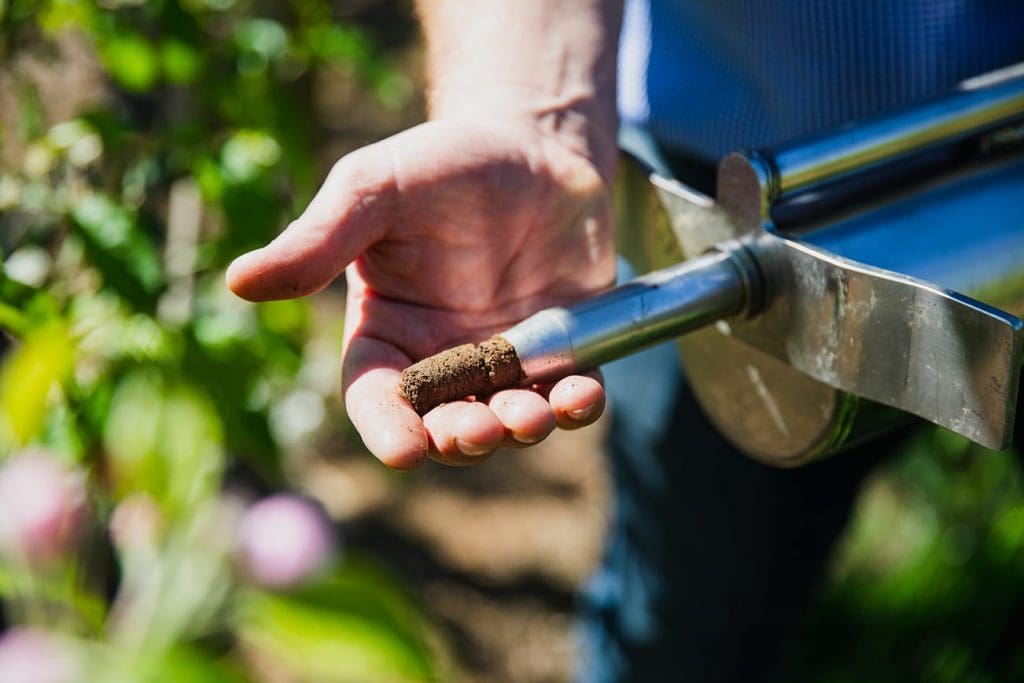A NEW multidisciplinary Australian Research Council (ARC) Research Hub for Smart Fertilisers at the University of Melbourne will develop a new class of fertilisers and inhibitors for Australian farmers.
Established within the School of Agriculture and Food at the University’s Parkville campus, the Hub aims to develop a new class of more sustainable ‘smart fertilisers’ to improve nitrogen efficiency, while minimising the environmental impact of productive agriculture.
 It is estimated more than 50 per cent of nitrogen fertiliser can be lost to the environment worldwide, particularly through volatilisation and denitrification. This can represent a substantial cost burden to farmers and contributes to a range of environmental issues.
It is estimated more than 50 per cent of nitrogen fertiliser can be lost to the environment worldwide, particularly through volatilisation and denitrification. This can represent a substantial cost burden to farmers and contributes to a range of environmental issues.
To improve fertiliser efficiency, Hub researchers will apply plant and soil science, chemistry and chemical engineering to develop new biochemical inhibitors and ‘smart fertilisers’ that respond to rhizosphere signals to minimise nitrogen losses.
These innovations aim to increase the efficiency of nitrogen use by up to 20 per cent, making a significant contribution to agriculture and the environment.
The Hub’s mission also includes developing evidence-based estimates of environmental and health costs of nitrogen losses and the social benefits of new fertilisers to inform government policy, industry and the community.
Hub director and leader of the Soils and the Environment Research Group at the University of Melbourne, Professor Deli Chen, said achieving this result would be transformative for agriculture in Australia and around the world, with enormous benefits to both individual farm profitability and our environmental sustainability.
“This will also help the Australian food and agribusiness sector grow to its 2030 target value of $100 billion, while delivering new technology, substantial cost savings, improved productivity, increased profitability and decreased environmental impacts.”
The Hub will provide technology and knowledge of significant value to the Australian agricultural and agribusiness sector, which is worth $67 billion annually and employs around 552,000 people.
“The ultimate goal is the creation of feedback responses within the outer shell of smart fertilisers that will trigger nitrogen release and inhibit microbial processes that induce nitrogen losses by drawing from the knowledge and capability of partners from across the entire value chain, from product design through to validation and adoption.”
Multi-partners
The Hub will be based in the Faculty of Veterinary and Agricultural Sciences at the University of Melbourne, and includes researchers from the Faculty of Science, the Melbourne School of Engineering and La Trobe University.
Partners include fertiliser manufacturer Incitec Pivot Fertilisers (IPF) and agribusiness company Elders Rural Services Australia.
“We are delighted to make this investment in the Hub to progress Australian research and develop locally invented smart fertilisers for Australian farmers,” IPF president Stephan Titze said.
“The Hub’s aim is to better understand the soil microbiome in Australia and create smart fertilisers to make highly effective and more sustainable plant nutrition products. This will help farmers improve both productivity and soil health at the same time.
“By partnering with some of the best researchers in the field from the University of Melbourne, we can help transfer innovative research developed in the lab to on farm solutions which work and perform better in Australian conditions.”
Elders is involved with the Hub through the Thomas Elder Institute, Elders’ research, development and extension arm, and will focus on the adoption of these new fertiliser technologies and their economic and environmental benefits to farmers.
Elders chief executive officer and managing director Mark Allison said Elders had a strong focus on sustainability, implementing strategies throughout the business, and supporting clients to adopt practices within their own enterprises.
“The implementation of new technologies such as controlled-release and nitrification inhibitors takes nutrition management to the next level. Understanding how the plant utilises these nutrients, and interacts with soil microbiology will also let us understand how to maximise the efficiency of our systems.”
Hub’s goals
The ARC Research Hub for Smart Fertilisers seeks to:
- Develop a new class of fertilisers using innovative engineered coatings to regulate release of nitrogen for a range of intensive agricultural systems.
- Develop new urease and nitrification inhibitors and a new dual action urease-nitrification inhibitor.
- Gain new insights into how the root biome integrates signals from plants and soil to optimise nutrient capture and use and incorporate the signalling molecules into fertiliser coatings to improve the resistance of a crop to drought, pathogens and diseases.
- Maximise sector-wide value from new knowledge and technologies through the development of engagement and adoption strategies and the measurement of net value-add and co-benefits.
- Measure, validate and demonstrate the agronomic, environmental, and social impacts of these new fertiliser products.
The Hub’s $11.45 million funding includes an investment of $4.95 million from the ARC, $3.8 million from IPF, $2 million from the University of Melbourne, $100,000 from La Trobe University and $500,000 from Elders Rural Services Australia.
Source: ARC Research Hub for Smart Fertilisers website: https://smartfertiliserhub.org.au
The ARC Research Hub for Smart Fertilisers is a partnership between The University of Melbourne, Incitec Pivot Fertilisers, Elders Rural Services and La Trobe University.

HAVE YOUR SAY